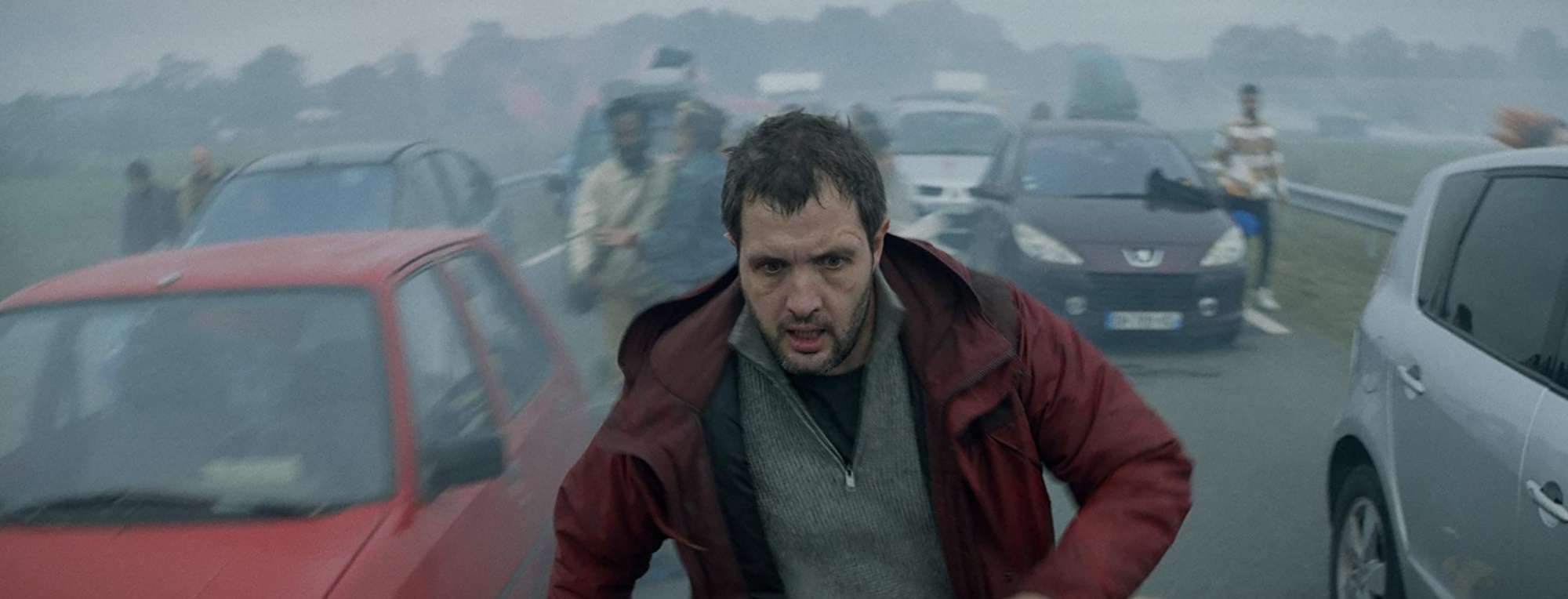
- Festivals
Stéphan Castang’s “Vincent Must Die” Premieres in Cannes
Director Stéphan Castang world-premiered his debut feature film Vincent Must Die at the Cannes Film Festival this week. Castang, who build a career as a theatre actor for over two decades, finally decided to fulfill a long-awaited dream and put himself into the director’s chair.
The satirical fantasy drama tells the tale of an ordinary man, Vincent (Karie Leklou), who works as a graphic designer. At work, strange things start to happen. He is suddenly assaulted by an intern who hits him over the head with a laptop. A few days later, another colleague stabs with a pen. Though Vincent requests that no action needs to be taken, his boss convinces him to start working remotely.
The interview with Stéphan Castang was conducted over Zoom.
What interested you in taking on this project?
Scenarist Thierry Luna had written the screenplay just before the pandemic hit. To be honest, when he first asked me if I’d be interested to direct the script, I wasn’t too excited about the idea, for I usually prefer to write my own stories. But once I read his scenario, I instantly connected with the excellent writing material and I saw a lot of creative potential. It was penned for someone who had a lot of neuroses, which I myself have a lot.
Additionally, what really attracted me to this project is that it had many mixed genres, which gave me space to play with several possibilities. We have un film d’amour, a love story, yet we also bring a bit of a zombie genre feel to it. The way the script was written left room to create a bit of dark humor which, without doubt, was essential and important for me. I enjoyed reworking the script with Thierry and to carefully work with the actors. I loved to highlight the weakness and strength of their character.
Do you feel that the story mimicked the real world we experienced during the pandemic?
Sure, it was incredible to reflect back on the time during Covid, where we could see humanity struggle and violence was everywhere around us. Some was created by imagination, some by people’s paranoia or by people who were wrapped up in loneliness due to isolation. I think this kind of violence has always been present in humans. What made it extraordinary is how coincidental the scenario at that time ran parallel with the world’s actuality.
The way the love story is told is through a pretty unique twist. Can you explain that?
True, we take the viewer on an absurd trip. What I loved about this l’histoire de l’amour is that I didn’t want to show a romance where we’d know the outcome in advance. I really wanted to show how difficult it is to become attached to someone, to build a story with another person. Also, I desired to express how difficult it is to create a relationship with someone and reveal that each personage can hold a dark violence inside. I sought to reveal a certain tenderness, where we could see and feel the two characters, but where they did not need to be naked in order to tell this love story amidst these absurd circumstances.
How important is it to have your first feature film premiere at a film festival such as Cannes?
It most certainly is exciting to suddenly have a spot in Cannes and know that there is an audience for our movie. It’s a real treat that I get to enjoy the premiere with my cast and especially to know that many people will be able to watch this film in Cannes. Also, a festival such as Cannes can be very particular and may be important to create movement for the road the film may take. It also creates a chance to meet people and mostly it gives an opportunity to talk about cinema which gives me gives me the greatest joy.